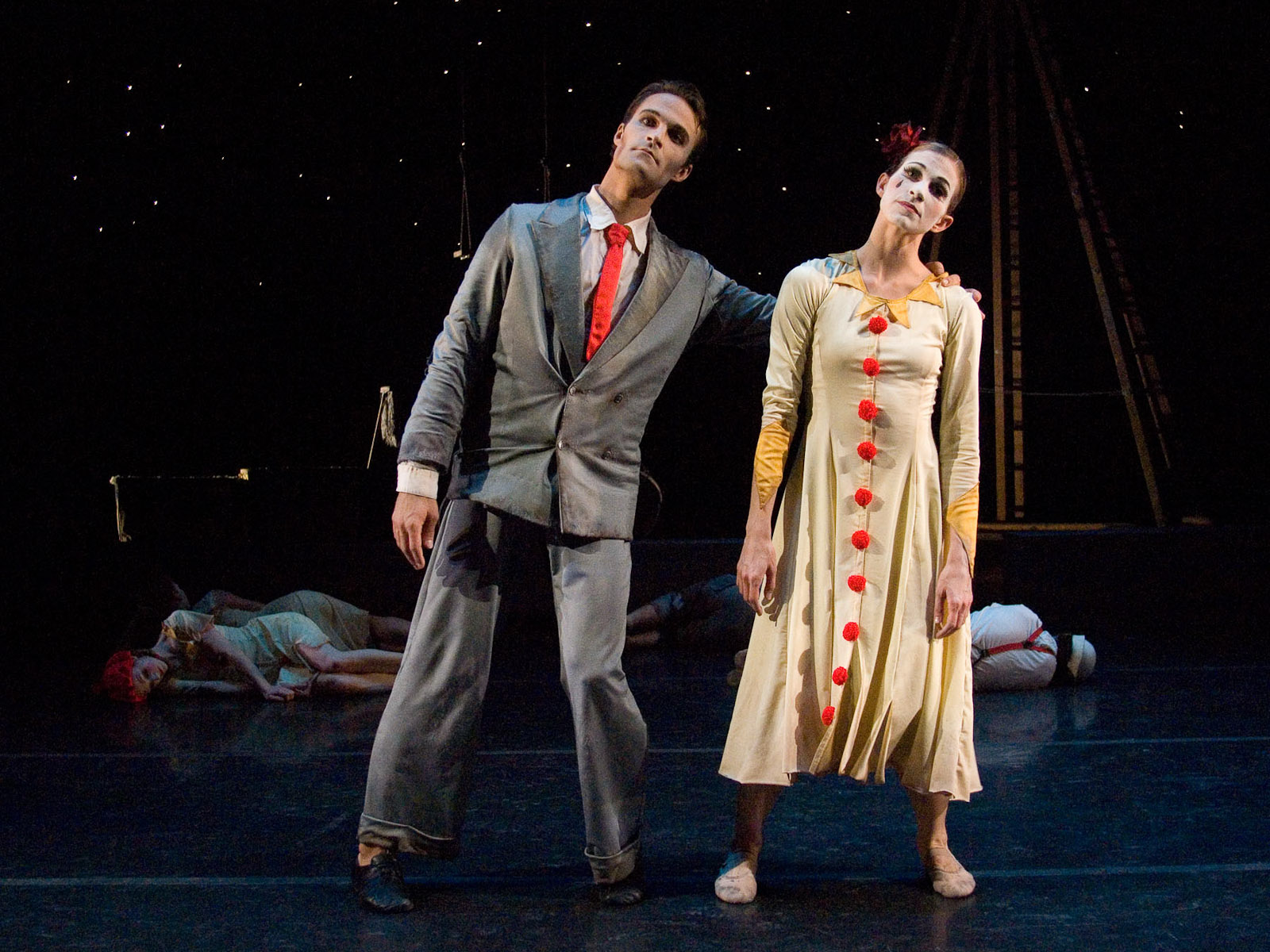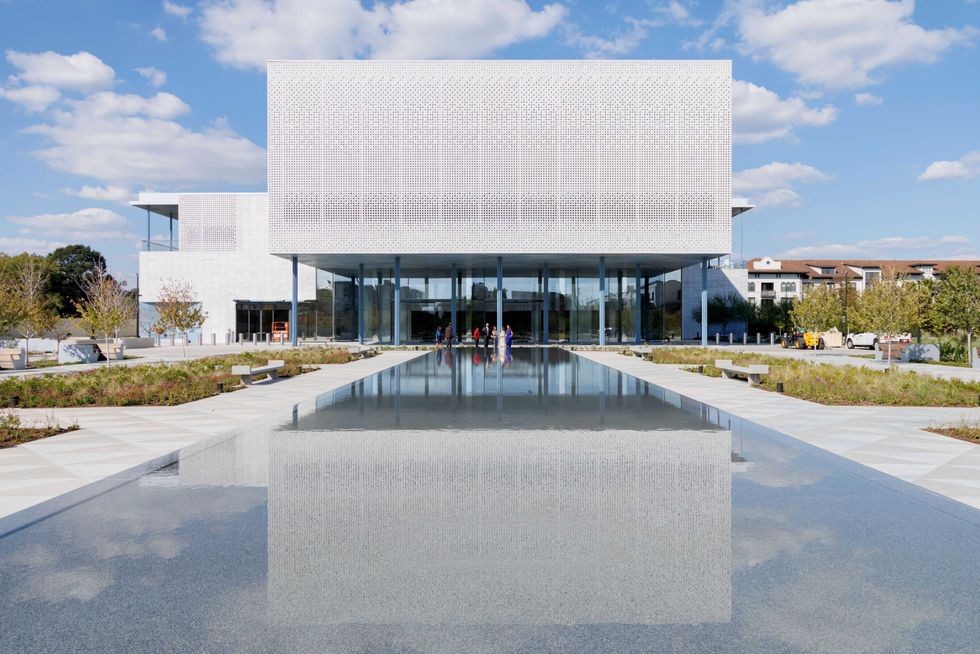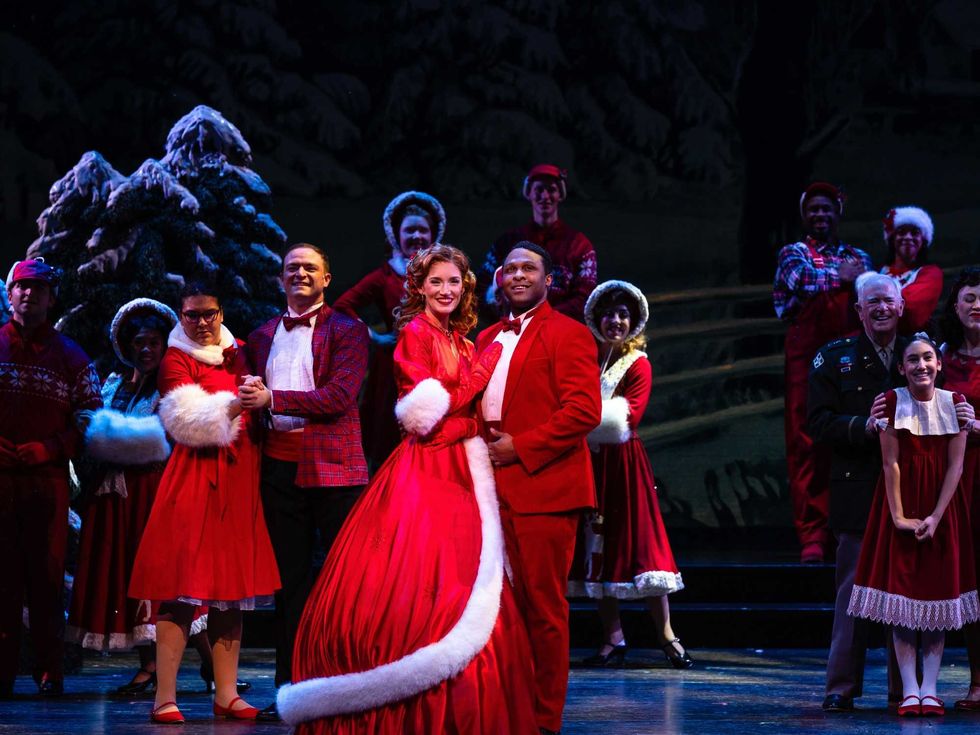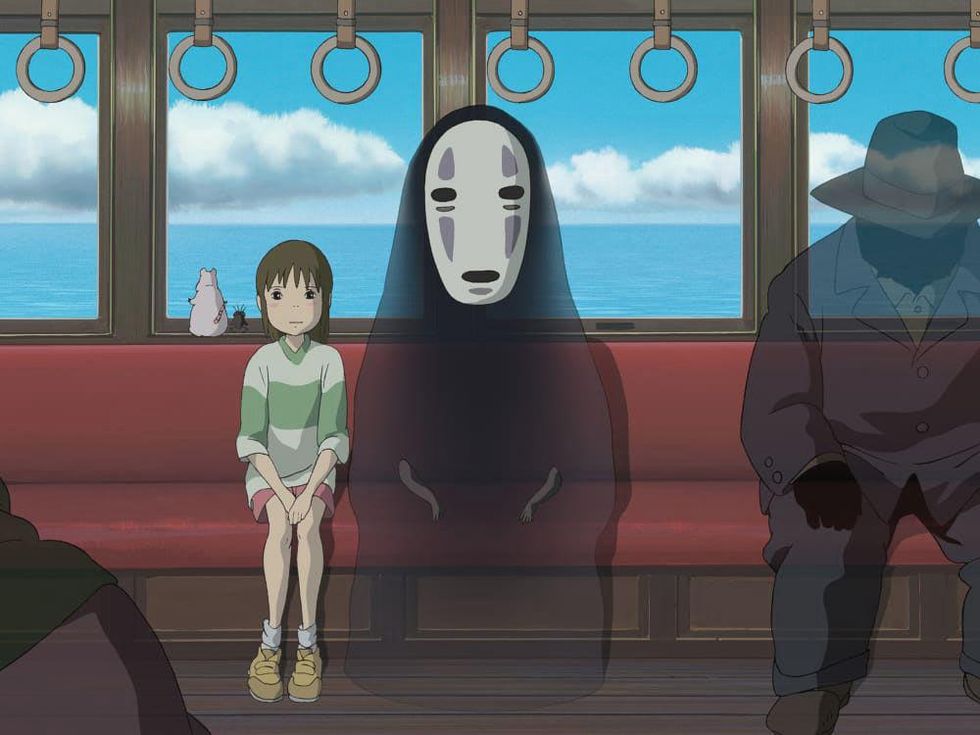The Arthropologist
Art has value that goes way beyond the economy or testing kids
 The world is a better place because my favorite ballet, "Hush" by ChristopherBruce, is in it. Houston Ballet performs Bruce's "Grinning in Your Face" in May.Pictured are Houston Ballet artists Nicholas Leschke and Kelly Myernick in"Hush."Photo by Jim Caldwell
The world is a better place because my favorite ballet, "Hush" by ChristopherBruce, is in it. Houston Ballet performs Bruce's "Grinning in Your Face" in May.Pictured are Houston Ballet artists Nicholas Leschke and Kelly Myernick in"Hush."Photo by Jim Caldwell Musiqa's "ReMix" programPhoto by Cressandra Thibideaux
Musiqa's "ReMix" programPhoto by Cressandra Thibideaux "I Go with my Feet" by Karen Stokes (a small film project currently indevelopment)Photo by Karen Stokes
"I Go with my Feet" by Karen Stokes (a small film project currently indevelopment)Photo by Karen Stokes A scene from Houston Grand Opera's "Peter Grimes"Photo by Felix Sanchez
A scene from Houston Grand Opera's "Peter Grimes"Photo by Felix Sanchez "To Cross the Face of the Moon" from the Houston Grand Opera's "Mariachi Opera"Photo by Felix Sanchez
"To Cross the Face of the Moon" from the Houston Grand Opera's "Mariachi Opera"Photo by Felix Sanchez A scene from "Madame Butterfly" produced by Houston Grand OperaPhoto by Felix Sanchez
A scene from "Madame Butterfly" produced by Houston Grand OperaPhoto by Felix Sanchez Houston Grand Opera's "A Way Home"Photo by Christopher Novosad
Houston Grand Opera's "A Way Home"Photo by Christopher Novosad
And now, a little rant from your resident art evangelist.
I will never forget the humiliation and anger I felt when, sitting in a meeting as the teaching artist liaison, a board member, announced that dance had the least impressive studies when it comes to helping kids learn math. Well, excuse me, lady, let me just run over to Houston Ballet, call all my choreographer and dancer friends, and tell them to quit because dance doesn't help us learn science, math and social studies as well as the other arts.
Her comments speak to a system where we only value an art form in its ability to do something outside of itself. It's a disturbing trend.
I have used this space to highlight a number of outstanding arts and education outreach programs in Houston, such as Musiqa, Houston Grand Opera, Houston Ballet, Society for the Performing Arts, Travesty Dance Company, InterActive Theater, Main Street Theater (MST) and many more. These are the people who are introducing the power of the arts to Houston's students. If curriculum connections manifest, terrific, go for it.
The best arts programs leave open the possibility that children are equally excited by the arts as they are the subject tie-ins. Designed to deepen and freshen teachers and students' experience with the Shakespeare canon, MST's peer to peer Shakespeare program is a perfect example of an initiative that puts art first.
Talking about the arts only in terms of its economic value, a virtual mantra of the arts community in Houston, is another concept that makes me want to scream at an annoyingly high pitch. Cancer makes a lot of money, too. Shall we shout that from roof tops as well?
Apparently, Houston arts bring in some $626.4 million into the city's economy. We eat before, during and after a show. I know I do. That's great, it's a benefit and a handy fact to have in your pocket. If you want to delve deeper, read The Value of Culture: on the relationship between economics and the arts, edited by Arjo Klamer. Diane Ragsdale, of Jumper, understands the dilemma well in her numerous blog posts addressing these issues.
If I hear about another expensive study on the impact of the arts on the economy, you will hear an even higher pitched scream. We have enough of these. And yes, they were crucial in getting arts funding included in the stimulus package, an impressive effort organized by Washington, DC-savvy Amy Fitterer, the new executive director of Dance/USA. I understand that making it clear to lawmakers that the arts provide jobs and are good for business is important, but it gets tricky when we leave it there.
John Kay gets it right in his essay A good economist knows the value of the arts
"The surveys on my desk are expensively commissioned because their sponsors perceive a language they detest and do not understand. We need to put out of our minds this widely held notion that there is such a thing as “the economy”, a monster outside the door that needs to be fed and propitiated and whose values conflict with things — such as sports, tourism and the arts — that make our lives agreeable and worthwhile. Activities that are good in themselves are good for the economy, and activities that are bad in themselves are bad for the economy. The only intelligible meaning of “benefit to the economy” is the contribution — direct or indirect — the activity makes to the welfare of ordinary citizens."
Here's the rub. If we only talk about art in terms of the other things it can do, help kids learn things and make money, we are essentially devaluing art itself. That's the message loud and clear. I am by no means suggesting we ignore the fact that the arts contribute to the economy or that children can learn all kinds of ideas through movement, the visual arts, music and theater.
We just need to stop thinking it's all we got. It's two fabulous things for our toolbox. But does it come close to the ecstasy, elation, illumination, emotion, soul-enriching mind-expanding mystery we can feel from an art experience? No way, no how.
What if we had a cultural policy in place that stated that we value what the arts contribute to our lives. That simple. We want to live in a world with arts and will do what it takes to ensure that continues. Oh, and by the way, the arts generate money and oftentimes learning. We can count dollars and test kids. But measuring how the arts make our life richer? That's tough. It can't be done in a qualitative way.
Who here wants to live in a world without art. Anybody? I didn't think so.
The arts have value. Say it, believe it, lead with it.
Stepping off the soap box now as I wish you a happy holiday.
Houston Ballet dancers Andrew Murphy, Mireille Hassenboehler, Bridgett Zehr and Kelly Myernick perform Balanchine's treasured masterwork Apollo.





